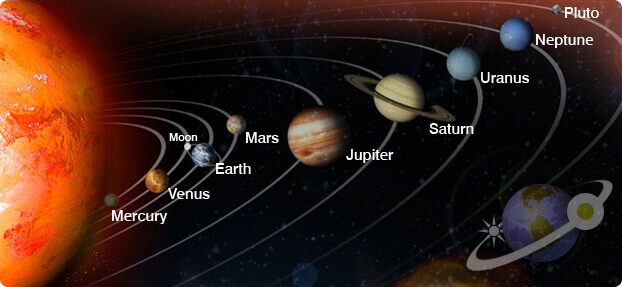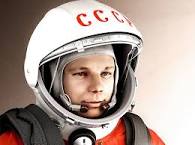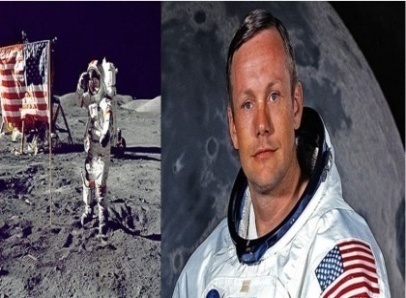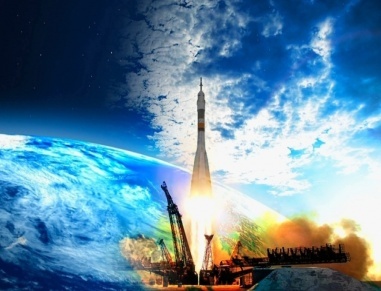
Almaly secondary school with pre-school mini-centre
Short term plan
Mission to Mars

Teacher name: Radyuk Oxana Petrovna
Short term plan
Lesson plan
|
Unit of a long term plan: 4. Space and Earth |
School: Almaly secondary school |
|||||||||||||||||||||||||||||||||||||||||||||
|
Date: the 22nd of December, 2017 |
Teacher name: Radyuk Oxana Petrovna |
|||||||||||||||||||||||||||||||||||||||||||||
|
CLASS: 7Ә |
Number present: |
absent: |
||||||||||||||||||||||||||||||||||||||||||||
|
Lesson title |
Mission to Mars |
|||||||||||||||||||||||||||||||||||||||||||||
|
Learning objectives(s) that this lesson is contributing to (link to the Subject programme) |
R1. Understand the main points in text on a limited range of unfamiliar general and curricular topics. L5. Recognize the opinion of the speakers in supported extended talk on a range of general and curricular topics. C10. Use talk or writing as a means of reflecting on and exploring a range of perspectives on the world. S6. Begin to link comments with some flexibility to what other say at sentence and discourse level in pair, group and whole class exchanges. C5. Use feedback to set personal learning objectives |
|||||||||||||||||||||||||||||||||||||||||||||
|
Lesson objectives |
|
|||||||||||||||||||||||||||||||||||||||||||||
|
Assessment criteria |
* Identify the main idea in reading passage * Identify the position of speakers in an extended talk with some support * Consider different perspectives on the world orally or in a written form * Interact in a pair, group and a whole class work presenting logically connected information with ideas of other people * Consider classmates’ advice and set personal learning objectives based on their feedback |
|||||||||||||||||||||||||||||||||||||||||||||
|
Level of thinking skills |
Application, higher order thinking skills |
|||||||||||||||||||||||||||||||||||||||||||||
|
Value links |
Economic growth based on industrialization and innovation |
|||||||||||||||||||||||||||||||||||||||||||||
|
Cross-curricular links |
Physics |
|||||||||||||||||||||||||||||||||||||||||||||
|
Previous learning |
Learners already know new words about space and earth, they should know facts about planets |
|||||||||||||||||||||||||||||||||||||||||||||
|
Plan |
||||||||||||||||||||||||||||||||||||||||||||||
|
Planned timings |
Planned activities (replace the notes below with your planned activities) |
Resources |
||||||||||||||||||||||||||||||||||||||||||||
|
Start 5 min |
Greetings. Good morning my dear pupils! -Who is on duty today ? -Who is absent? -What date and what day is it today? Warming-up Planets
Here are
eight planets that we know.
Jupiter,
Saturn, Uranus, too. |
|
||||||||||||||||||||||||||||||||||||||||||||
|
Middle
5 min
5-min
5min
10 min
5 min |
Task 1 Pre- reading Look at the pictures and solar system and answer the questions. Solar system a) Listen and
repeat. b) Which for planets comprise: the inner solar system (closest to the Sun)? the outer solar system?
2. How are these names: Yuri Gagarin, Vostok 1, Baikonur Cosmodrome, Neil Armstrong, Opportunity and Curiosity, NASA related to space exploration? Listen and check.
Yuri Gagarin (1961) Neil Armstrong (1969) Baikonur - How many planets are there? Name them. - What is the biggest planet? - What is the smallest planet? - Who was the first person in space? - Who was the first human to walk on the Moon? Descriptor
Task 2 While- reading Read and understand the text. Mission to Mars
2. Why Mars? Well, firstly, it’s not too far. Apart from Venus, it’s our closest neighbour, so the journey will take months and years. Temperatures on Venus are over 4000C so humans can’t go there, but on Mars the average temperature is about -630C. Other planets like Jupiter and Saturn are big balls of gas with extremely strong winds, but Mars has a solid rocky surface.
4. Of course, the dream for many people is to send humans to Mars. NASA, the American space agency, is aiming to do this in the 2030s. It won’t be easy for the astronauts as they will have to send almost three years away from Earth, but it will be worth it. Neil Armstrong made “one giant leap for mankind.” The first astronaut on Mars will make an even greater one. Which things in the text impressed you? Write a few sentences. Read your sentences to the class. Descriptor
Task 3 Post- reading Read the text again and, complete the text with the words below
Descriptor
Task 4 Watching video “Mission to Mars ”Watch video about the “Mission to Mars” and match the items 1-5 to their descriptions A-E (Think)
Descriptor
Task 5
Handout The Planets How well do you know your planets? Carefully read descriptions of the planets from 1 to 8, and try to identify Earth, Jupiter, Mars, Mercury, Neptune, Saturn, Uranus and Venus from the texts. 1. This planet was named after the Roman god of war. It is often called the Red Planet because of its colour. There are canyons, volcanic mountains, frozen water and ice caps on this planet. __________ 2. This planet is the only planet named after a woman – the goddess of love. Lightning flashes and thunder roars day and night. This planet is the most easily identifiable object in the night sky after the Moon. _____________ 3. Because of its pale blue colour, this planet was named after the Roman god of water. It was originally thought to have two moons, but astronomers have now discovered four new moons. Like Jupiter and Saturn, it radiates more energy than it receives from the Sun. ________________ 4. It is the fastest-moving planet and the closest to the Sun. It was named after the speedy messenger of the Roman gods. It has no moons and no atmosphere. It travels around the Sun in 88 Earth days and its surface temperature can rise to over 400 degrees centigrade. __________________ 5. This planet travels around the Sun in 84 Earth years. It is blue-green and has black rings around it, which are thought to be made of rock. This planet is unusual because it lies on its side. It was named after the Roman god who was the father of Saturn and the grandfather of Jupiter. _______________ 6. In Latin, it is called Terra Mater. It is the only planet known to sustain life. This planet is covered more by water than land (70% water). It travels around the Sun in 365 days. ____________________ 7. It is called the King of the Planets and was named after the king of the Roman gods. It is the largest planet and weighs more than all the other planets put together. It has at least 17 moons and has a red spot that is a hurricane-like storm larger than the Pacific Ocean. ___________________ 8. This planet was named after the Roman god of farming. It is famous for its seven main rings made of icy particles, some as large as buildings. It is the second largest planet and yellow in colour. It takes 29.46 Earth years to circle the Sun. ____________________ Key: 1. Mars; 2. Venus; 3. Neptune; 4. Mercury; 5. Uranus; 6. Earth; 7. Jupiter; 8. Saturn Descriptor
PLANET SCRAMBLE Unscramble the names of planets. Descriptor
|
Audio-Visual
Excel-grade-7-student book Page: 46-47 |
||||||||||||||||||||||||||||||||||||||||||||
|
End 5min |
Home task: Write Essay about Space and Earth Student lesson Feedback Circle appropriate number 1= not at all 5= extremely
This lesson topic was helpful 1 2 3 4 5 The lesson held my attention 1 2 3 4 5 The lesson was easy to understand 1 2 3 4 5
What I liked about this lesson: …………………………………………………
What I didn’t like about this lesson:……………………………………………..
What I suggest to improve the lesson:………………………………………......
|
|
||||||||||||||||||||||||||||||||||||||||||||
|
Additional information |
||||||||||||||||||||||||||||||||||||||||||||||
|
Differentiation – how do you plan to give more support? How do you plan to challenge the more able learners? |
Assessment – how are you planning to check learners’ learning? |
Health and safety check |
||||||||||||||||||||||||||||||||||||||||||||
|
Differentiationcan be achievedthroughtheselectionofactivities, identification of learning outcomes for a certain student, provision of individual support to learners,selection of learning materials and resources based on the individual abilities of leaners (Theory of Multiple Intelligences by Gardner). |
Use this section to record the techniques that you will use to assess what the learners have learned during the lesson. |
Health saving technologies. Using physical exercises and active activities. Rules from the Safety Rules book which can be applied in this lesson. |
||||||||||||||||||||||||||||||||||||||||||||
|
Reflection
Were the lesson objectives/learning objectives realistic? Did all the learners achieve thelesson objectives/ learning objectives? If not, why? Did my planned differentiation work well? Did I stick to timings? What changes did I make from my plan and why?
|
Use the space below to reflect on your lesson. Answer the most relevant questions from the box on the left about your lesson. |
|||||||||||||||||||||||||||||||||||||||||||||
|
|
||||||||||||||||||||||||||||||||||||||||||||||
|
Summary evaluation
What two things went really well (consider both teaching and learning)?
1:
2:
What two things would have improved the lesson (consider both teaching and learning)?
1:
2:
What have I learned from this lesson about the class orindividuals that will inform my next lesson?
|
||||||||||||||||||||||||||||||||||||||||||||||
 -
excellent
-
excellent
 vпgood
vпgood
п
 -
satisfactory
-
satisfactory
Name and surname_______________________________________________
Circle appropriate number 1= not at all 5= extremely
This lesson topic was helpful 1 2 3 4 5
The lesson held my attention 1 2 3 4 5
The lesson was easy to understand 1 2 3 4 5
What I liked about this lesson: …………………………………………………
What I didn’t like about this lesson:……………………………………………..
What I suggest to improve the lesson:………………………………………......
Name and surname_______________________________________________
Circle appropriate number 1= not at all 5= extremely
This lesson topic was helpful 1 2 3 4 5
The lesson held my attention 1 2 3 4 5
The lesson was easy to understand 1 2 3 4 5
What I liked about this lesson: …………………………………………………
What I didn’t like about this lesson:……………………………………………..
What I suggest to improve the lesson:………………………………………......
Assessment
|
|
Name and surname |
1st task by text |
2nd task- video |
3rd cards |
Additional marks |
|
1 |
Baideldinova Aigerim |
|
|
|
|
|
2 |
Zhumagazy Zarina |
|
|
|
|
|
3 |
Zhumagazy Rassul |
|
|
|
|
|
4 |
Kabdualieva Balzhan |
|
|
|
|
|
5 |
Kudaibergen Dias |
|
|
|
|
|
6 |
Kumargali Ayaulym |
|
|
|
|
|
7 |
Mussan Kanat |
|
|
|
|
|
8 |
Sabaz Bakytgyl |
|
|
|
|
|
9 |
Toksambaeva Aliya |
|
|
|
|
|
10 |
Sharipkhan Sanzhar |
|
|
|
|
жүктеу мүмкіндігіне ие боласыз
Бұл материал сайт қолданушысы жариялаған. Материалдың ішінде жазылған барлық ақпаратқа жауапкершілікті жариялаған қолданушы жауап береді. Ұстаз тілегі тек ақпаратты таратуға қолдау көрсетеді. Егер материал сіздің авторлық құқығыңызды бұзған болса немесе басқа да себептермен сайттан өшіру керек деп ойласаңыз осында жазыңыз
Ашық сабақ "Mission to Mars" 7 сынып
Ашық сабақ "Mission to Mars" 7 сынып
Almaly secondary school with pre-school mini-centre
Short term plan
Mission to Mars

Teacher name: Radyuk Oxana Petrovna
Short term plan
Lesson plan
|
Unit of a long term plan: 4. Space and Earth |
School: Almaly secondary school |
|||||||||||||||||||||||||||||||||||||||||||||
|
Date: the 22nd of December, 2017 |
Teacher name: Radyuk Oxana Petrovna |
|||||||||||||||||||||||||||||||||||||||||||||
|
CLASS: 7Ә |
Number present: |
absent: |
||||||||||||||||||||||||||||||||||||||||||||
|
Lesson title |
Mission to Mars |
|||||||||||||||||||||||||||||||||||||||||||||
|
Learning objectives(s) that this lesson is contributing to (link to the Subject programme) |
R1. Understand the main points in text on a limited range of unfamiliar general and curricular topics. L5. Recognize the opinion of the speakers in supported extended talk on a range of general and curricular topics. C10. Use talk or writing as a means of reflecting on and exploring a range of perspectives on the world. S6. Begin to link comments with some flexibility to what other say at sentence and discourse level in pair, group and whole class exchanges. C5. Use feedback to set personal learning objectives |
|||||||||||||||||||||||||||||||||||||||||||||
|
Lesson objectives |
|
|||||||||||||||||||||||||||||||||||||||||||||
|
Assessment criteria |
* Identify the main idea in reading passage * Identify the position of speakers in an extended talk with some support * Consider different perspectives on the world orally or in a written form * Interact in a pair, group and a whole class work presenting logically connected information with ideas of other people * Consider classmates’ advice and set personal learning objectives based on their feedback |
|||||||||||||||||||||||||||||||||||||||||||||
|
Level of thinking skills |
Application, higher order thinking skills |
|||||||||||||||||||||||||||||||||||||||||||||
|
Value links |
Economic growth based on industrialization and innovation |
|||||||||||||||||||||||||||||||||||||||||||||
|
Cross-curricular links |
Physics |
|||||||||||||||||||||||||||||||||||||||||||||
|
Previous learning |
Learners already know new words about space and earth, they should know facts about planets |
|||||||||||||||||||||||||||||||||||||||||||||
|
Plan |
||||||||||||||||||||||||||||||||||||||||||||||
|
Planned timings |
Planned activities (replace the notes below with your planned activities) |
Resources |
||||||||||||||||||||||||||||||||||||||||||||
|
Start 5 min |
Greetings. Good morning my dear pupils! -Who is on duty today ? -Who is absent? -What date and what day is it today? Warming-up Planets
Here are
eight planets that we know.
Jupiter,
Saturn, Uranus, too. |
|
||||||||||||||||||||||||||||||||||||||||||||
|
Middle
5 min
5-min
5min
10 min
5 min |
Task 1 Pre- reading Look at the pictures and solar system and answer the questions. Solar system a) Listen and
repeat. b) Which for planets comprise: the inner solar system (closest to the Sun)? the outer solar system?
2. How are these names: Yuri Gagarin, Vostok 1, Baikonur Cosmodrome, Neil Armstrong, Opportunity and Curiosity, NASA related to space exploration? Listen and check.
Yuri Gagarin (1961) Neil Armstrong (1969) Baikonur - How many planets are there? Name them. - What is the biggest planet? - What is the smallest planet? - Who was the first person in space? - Who was the first human to walk on the Moon? Descriptor
Task 2 While- reading Read and understand the text. Mission to Mars
2. Why Mars? Well, firstly, it’s not too far. Apart from Venus, it’s our closest neighbour, so the journey will take months and years. Temperatures on Venus are over 4000C so humans can’t go there, but on Mars the average temperature is about -630C. Other planets like Jupiter and Saturn are big balls of gas with extremely strong winds, but Mars has a solid rocky surface.
4. Of course, the dream for many people is to send humans to Mars. NASA, the American space agency, is aiming to do this in the 2030s. It won’t be easy for the astronauts as they will have to send almost three years away from Earth, but it will be worth it. Neil Armstrong made “one giant leap for mankind.” The first astronaut on Mars will make an even greater one. Which things in the text impressed you? Write a few sentences. Read your sentences to the class. Descriptor
Task 3 Post- reading Read the text again and, complete the text with the words below
Descriptor
Task 4 Watching video “Mission to Mars ”Watch video about the “Mission to Mars” and match the items 1-5 to their descriptions A-E (Think)
Descriptor
Task 5
Handout The Planets How well do you know your planets? Carefully read descriptions of the planets from 1 to 8, and try to identify Earth, Jupiter, Mars, Mercury, Neptune, Saturn, Uranus and Venus from the texts. 1. This planet was named after the Roman god of war. It is often called the Red Planet because of its colour. There are canyons, volcanic mountains, frozen water and ice caps on this planet. __________ 2. This planet is the only planet named after a woman – the goddess of love. Lightning flashes and thunder roars day and night. This planet is the most easily identifiable object in the night sky after the Moon. _____________ 3. Because of its pale blue colour, this planet was named after the Roman god of water. It was originally thought to have two moons, but astronomers have now discovered four new moons. Like Jupiter and Saturn, it radiates more energy than it receives from the Sun. ________________ 4. It is the fastest-moving planet and the closest to the Sun. It was named after the speedy messenger of the Roman gods. It has no moons and no atmosphere. It travels around the Sun in 88 Earth days and its surface temperature can rise to over 400 degrees centigrade. __________________ 5. This planet travels around the Sun in 84 Earth years. It is blue-green and has black rings around it, which are thought to be made of rock. This planet is unusual because it lies on its side. It was named after the Roman god who was the father of Saturn and the grandfather of Jupiter. _______________ 6. In Latin, it is called Terra Mater. It is the only planet known to sustain life. This planet is covered more by water than land (70% water). It travels around the Sun in 365 days. ____________________ 7. It is called the King of the Planets and was named after the king of the Roman gods. It is the largest planet and weighs more than all the other planets put together. It has at least 17 moons and has a red spot that is a hurricane-like storm larger than the Pacific Ocean. ___________________ 8. This planet was named after the Roman god of farming. It is famous for its seven main rings made of icy particles, some as large as buildings. It is the second largest planet and yellow in colour. It takes 29.46 Earth years to circle the Sun. ____________________ Key: 1. Mars; 2. Venus; 3. Neptune; 4. Mercury; 5. Uranus; 6. Earth; 7. Jupiter; 8. Saturn Descriptor
PLANET SCRAMBLE Unscramble the names of planets. Descriptor
|
Audio-Visual
Excel-grade-7-student book Page: 46-47 |
||||||||||||||||||||||||||||||||||||||||||||
|
End 5min |
Home task: Write Essay about Space and Earth Student lesson Feedback Circle appropriate number 1= not at all 5= extremely
This lesson topic was helpful 1 2 3 4 5 The lesson held my attention 1 2 3 4 5 The lesson was easy to understand 1 2 3 4 5
What I liked about this lesson: …………………………………………………
What I didn’t like about this lesson:……………………………………………..
What I suggest to improve the lesson:………………………………………......
|
|
||||||||||||||||||||||||||||||||||||||||||||
|
Additional information |
||||||||||||||||||||||||||||||||||||||||||||||
|
Differentiation – how do you plan to give more support? How do you plan to challenge the more able learners? |
Assessment – how are you planning to check learners’ learning? |
Health and safety check |
||||||||||||||||||||||||||||||||||||||||||||
|
Differentiationcan be achievedthroughtheselectionofactivities, identification of learning outcomes for a certain student, provision of individual support to learners,selection of learning materials and resources based on the individual abilities of leaners (Theory of Multiple Intelligences by Gardner). |
Use this section to record the techniques that you will use to assess what the learners have learned during the lesson. |
Health saving technologies. Using physical exercises and active activities. Rules from the Safety Rules book which can be applied in this lesson. |
||||||||||||||||||||||||||||||||||||||||||||
|
Reflection
Were the lesson objectives/learning objectives realistic? Did all the learners achieve thelesson objectives/ learning objectives? If not, why? Did my planned differentiation work well? Did I stick to timings? What changes did I make from my plan and why?
|
Use the space below to reflect on your lesson. Answer the most relevant questions from the box on the left about your lesson. |
|||||||||||||||||||||||||||||||||||||||||||||
|
|
||||||||||||||||||||||||||||||||||||||||||||||
|
Summary evaluation
What two things went really well (consider both teaching and learning)?
1:
2:
What two things would have improved the lesson (consider both teaching and learning)?
1:
2:
What have I learned from this lesson about the class orindividuals that will inform my next lesson?
|
||||||||||||||||||||||||||||||||||||||||||||||
 -
excellent
-
excellent
 vпgood
vпgood
п
 -
satisfactory
-
satisfactory
Name and surname_______________________________________________
Circle appropriate number 1= not at all 5= extremely
This lesson topic was helpful 1 2 3 4 5
The lesson held my attention 1 2 3 4 5
The lesson was easy to understand 1 2 3 4 5
What I liked about this lesson: …………………………………………………
What I didn’t like about this lesson:……………………………………………..
What I suggest to improve the lesson:………………………………………......
Name and surname_______________________________________________
Circle appropriate number 1= not at all 5= extremely
This lesson topic was helpful 1 2 3 4 5
The lesson held my attention 1 2 3 4 5
The lesson was easy to understand 1 2 3 4 5
What I liked about this lesson: …………………………………………………
What I didn’t like about this lesson:……………………………………………..
What I suggest to improve the lesson:………………………………………......
Assessment
|
|
Name and surname |
1st task by text |
2nd task- video |
3rd cards |
Additional marks |
|
1 |
Baideldinova Aigerim |
|
|
|
|
|
2 |
Zhumagazy Zarina |
|
|
|
|
|
3 |
Zhumagazy Rassul |
|
|
|
|
|
4 |
Kabdualieva Balzhan |
|
|
|
|
|
5 |
Kudaibergen Dias |
|
|
|
|
|
6 |
Kumargali Ayaulym |
|
|
|
|
|
7 |
Mussan Kanat |
|
|
|
|
|
8 |
Sabaz Bakytgyl |
|
|
|
|
|
9 |
Toksambaeva Aliya |
|
|
|
|
|
10 |
Sharipkhan Sanzhar |
|
|
|
|

шағым қалдыра аласыз


















